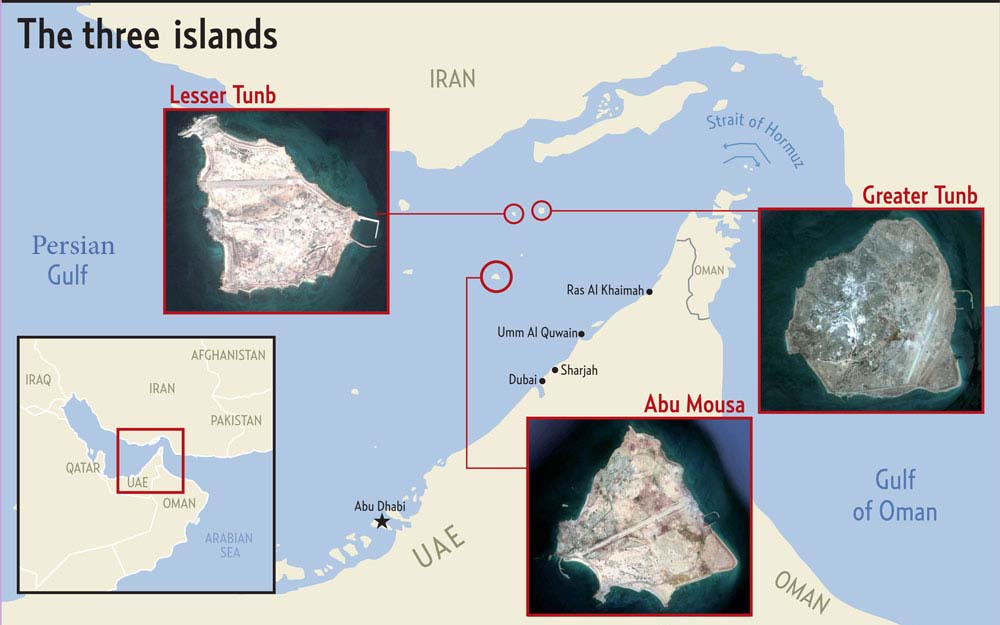Disputed Persian Gulf Islands | 27 Dec 2023
Why in News?
Tensions between Iran and the United Arab Emirates (UAE) have escalated as a joint statement issued at the 6th Arab-Russian Cooperation Forum in Morocco challenged Iran’s claims to three disputed islands in the Persian Gulf.
- A joint statement signed by Russia and Arab countries has called for a peaceful resolution to the Iran-UAE conflict over disputed islands. In response, Iran summoned the Russian envoy to express its protest against the joint statement.
What is the Dispute Over the Persian Gulf Islands?
- The dispute involves three islands in the strategic Strait of Hormuz, namely the Greater Tunb, Lesser Tunb, and Abu Musa.
- Iran claims that the islands have been part of Persian states since the ancient past until they were occupied by the British in the early 20th century.
- Iran took control of the three islands after British forces withdrew in 1971. It considers them an "inseparable" part of its territory.
- It also says that It has an agreement with Sharjah, one of the UAE’s seven emirates, which gives it the right to administer Abu Musa and station troops there.
- The UAE asserts ownership of the disputed islands, with Ras al-Khaimah(City in the UAE) claiming Greater and Lesser Tunbs, and Sharjah claiming Abu Musa.
- The UAE contends that Iran forcibly seized the islands from Ras al-Khaimah just before the formation of the Emirati Federation in 1971.
Persian Gulf
- The Persian Gulf is a shallow sea in the Indian Ocean that borders the Arabian Peninsula and southwestern Iran. It's also known as the Arabian Gulf.
- The Persian Gulf is bordered by Iran, Iraq, Kuwait, Saudi Arabia, Bahrain, Qatar, the United Arab Emirates, and Oman.
- The Persian Gulf is connected to the Gulf of Oman by the Strait of Hormuz.
- The Strait of Hormuz is situated between Qeshm Island and the Iranian coast in the north and the Musandam Peninsula of the Arabian Peninsula in the south.
- Persian Gulf countries are major producers of crude oil and natural gas.

